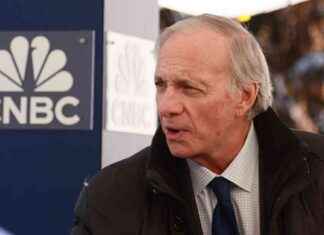Vice President Kamala Harris recently appeared on the “Call Her Daddy” podcast hosted by Alex Cooper. In the podcast, Harris discussed various important issues, including her criticism of former President Donald Trump’s stance on abortion.
During the interview, Harris highlighted the fact that there are now 20 states with Trump abortion bans in place. She also pointed out Trump’s controversial statement in the past where he suggested that women should be punished for having abortions. Harris emphasized the importance of protecting women’s rights and ensuring access to safe and legal abortion services.
The conversation on the podcast took a serious tone as Harris discussed the impact of three Supreme Court justices nominated by Trump who were part of the majority decision to overturn Roe v. Wade. This decision has allowed individual states to impose restrictions on abortion, potentially limiting women’s access to reproductive healthcare.
The “Call Her Daddy” podcast, known for its sex-positive content, typically does not delve into political topics. However, Cooper made it clear that her goal was not to change the political affiliations of her audience but to provide a platform for important discussions with guests like Harris.
Harris’ appearance on the podcast is part of a broader media strategy by her campaign to engage with a diverse audience and address key issues facing the country. This move is also seen as an attempt to shift the focus away from Trump and his controversial statements.
In a related development, former First Lady Melania Trump expressed her support for abortion rights in a recent Fox News interview, diverging from the traditional Republican stance on the issue. This highlights the ongoing debate within the party regarding women’s reproductive rights and the need for a more inclusive approach.
Overall, Harris’ interview on the “Call Her Daddy” podcast sheds light on the importance of discussing critical issues such as abortion rights and women’s healthcare in various platforms. It also underscores the role of political leaders in engaging with diverse audiences and addressing concerns that impact people’s lives.








